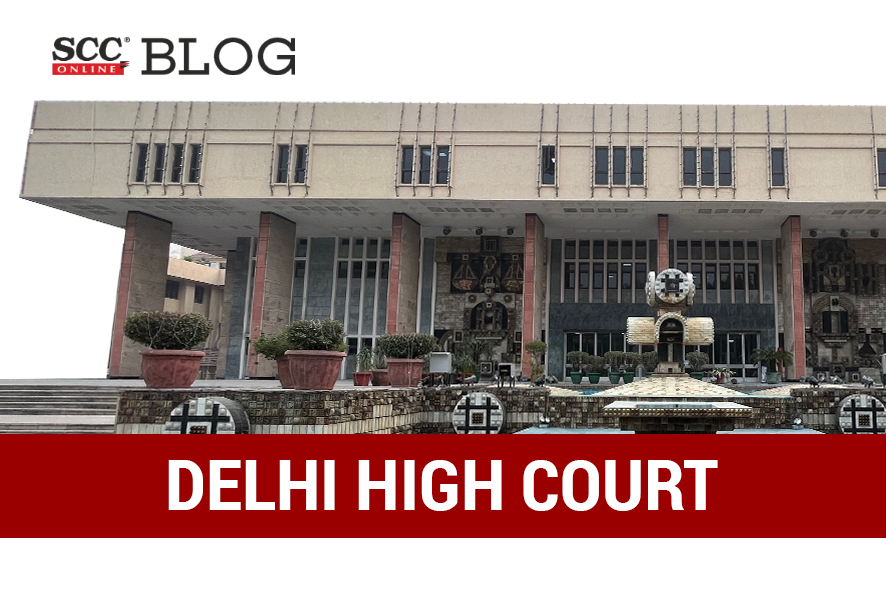Delhi High Court: In a case wherein the application for refund of Input Tax Credit (“ITC”) was rejected, a Division Bench of Vibhu Bakhru* and Amit Mahajan, JJ. opined that that the petitioner’s refund applications had been rejected merely because of suspicion without any cogent material, therefore, the Court held that the applications for ITC refund could not be denied to the petitioner.
Background
The petitioner had filed its refund application seeking refund of the unutilized ITC amounting to Rs. 72,03,961, which comprised of Integrated Goods and Services Tax (“IGST”) amounting to Rs. 19,53,062 and Cess of Rs. 52,50,899. The petitioner also filed another refund application claiming refund of ITC of Rs. 12,40,270 comprising of IGST of Rs. 3,37,174 and Cess amounting to Rs. 9,03,096. These refunds were sought for goods exported by the petitioner.
The respondents issued a deficiency memo in respect of the first application and stated that the supporting documents were not uploaded on the GST portal. Accordingly, the petitioner filed another application along with all the documents in support of its refund application and the same was acknowledged by the respondents. But still the petitioner’s applications were not processed as the supplier from whom the petitioner had purchased the goods had allegedly received fake invoices from its suppliers. A search was conducted by the officers of Central GST, Anti Evasion Branch in the petitioner’s premises, and thereafter, the petitioner was summoned to the office of respondent to tender certain documents. Admittedly, the petitioner appeared before the Superintendent, Anti Evasion Branch and furnished documents as sought for.
The petitioner wrote several letters to the respondents requesting early disposal of his refund applications. However, his requests were not acceded to. In the meantime, the petitioner became aware of the allegations that its supplier, Shruti Exports, had issued fake invoices and its ITC was blocked. The petitioner submitted that he was not concerned with any allegation against its supplier Shruti Exports as the purchases made by the petitioner were genuine and against genuine invoices. The refund applications were rejected as they appeared to be part of a supply chain involving fake ITC. The petitioner appealed the said orders rejecting its refund applications, which were dismissed by the impugned order.
Analysis, Law, and Decision
The Appellate Authority held that although the petitioner had the tax invoices, it could not be said that the petitioner had received the goods. Therefore, one of the conditions as stipulated in Section 16(2) of the Central Goods & Services Tax, 2017, that the taxpayer had received the goods or services or both, was not satisfied. The Appellate Authority concluded that the present case was one of “good less supply on the strength of fake invoices”.
This Court noted that the petitioner’s refund applications were rejected on a mere apprehension that its supplier had issued fake invoices and there was no conclusive finding based on any cogent material that the invoices issued by Shruti Exports to the petitioner were fake invoices. The Court further noted that the invoices issued by Shruti Exports were reflected in the AIO System and there was no dispute that Shruti Exports had issued the said invoices. It was also clear that Shruti Exports was a dealer registered with the Goods & Services Tax Department. Moreover, there was no allegation that the invoices were not paid by the petitioner. The Court also noted that there was no allegation that the goods in question were not exported overseas. Thus, the Court opined that the petitioner had established not only the fact that the goods had been exported but that it had paid for the same including the IGST and Cess.
The Court opined that the petitioner’s refund applications had been rejected merely because of suspicion without any cogent material. Moreover, there was no dispute that goods have been exported; the invoices in respect of which the petitioner claimed the ITC were raised by a registered dealer; and there was no allegation that the petitioner had not paid the invoices, which included taxes. Thus, the Court held that the applications for refund could not be denied to the petitioner. The Court further held that the allegations of any fake credit availed by Shruti Exports could not be a ground for rejecting the petitioner’s refund applications unless it was established that the petitioner had not received the goods or paid for them.
The Court relied on On Quest Merchandising India Pvt. Ltd. v. State (NCT of Delhi), 2017 SCC OnLine Del 11286 and held that the petitioner would be entitled to the refund of the ITC on goods that had been exported by the petitioner. Thus, the Court allowed the petition and directed the respondents to process the petitioner’s applications for refund of the ITC including Cess. The Court further opined that when the respondents were able to find material to establish the allegations regarding non-supply of any goods by Shruti Exports to the petitioner, then the respondents could initiate such action as may be warranted in accordance with law.
[Balaji Exim v. Commissioner, CGST, 2023 SCC OnLine Del 1412, decided on 10-3-2023]
Advocates who appeared in this case:
For the Petitioner: Advocate Abhas Mishra;
Advocate Aakriti P. Mishra;
Advocate Shyam Bhageria;
For the Respondents: Senior Standing Counsel Aditya Singla;
Senior Panel Counsel Nidhi Banga;
Advocate Sahitya Veena;
Advocate Nishant Kumar.
*Judgment authored by: Justice Vibhu Bakhru.






